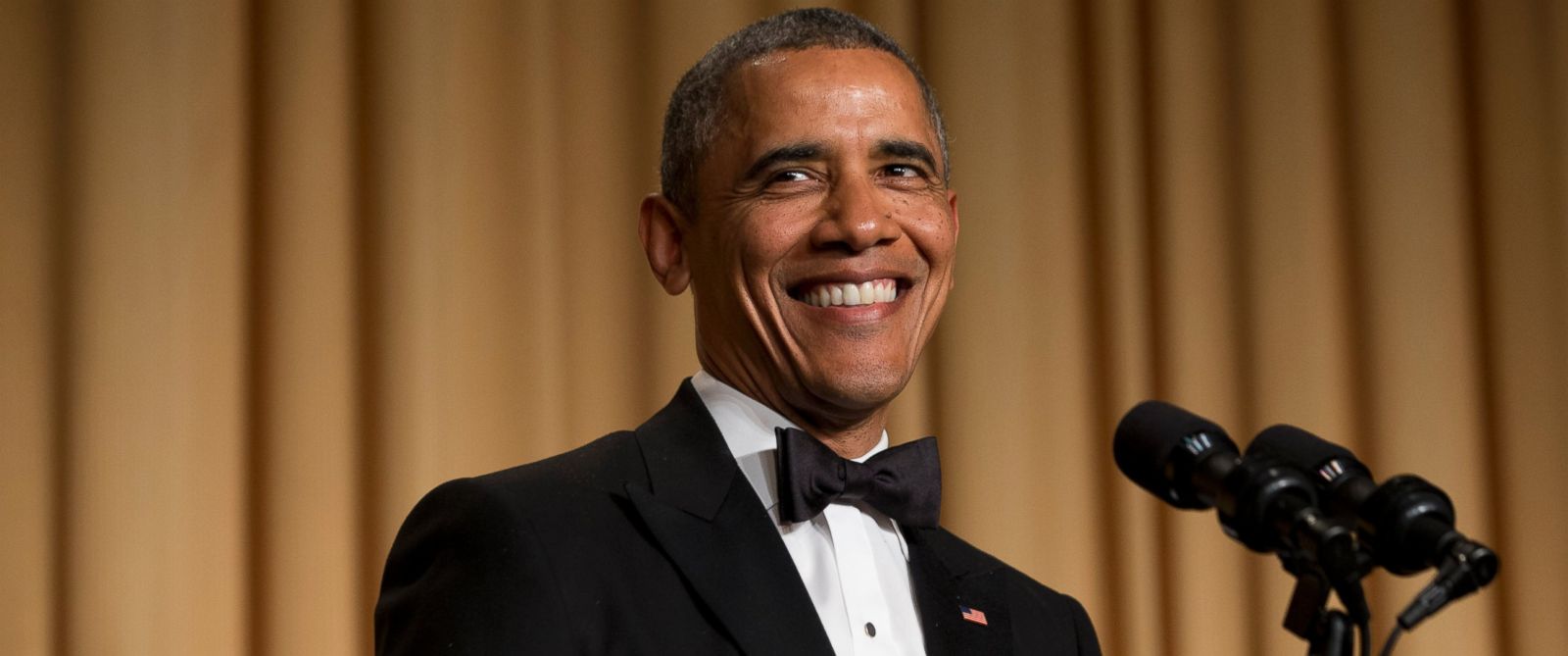
Cuba on Obama’s fourth quarter ‘bucket list’
Last Spring, when President Obama addressed the White House Correspondents’ Association Dinner, he said to the reporters on hand at the annual ‘Washington Celebrates Itself’ Gala, “Welcome to the fourth quarter of my presidency.”
“I am determined to make the most of every moment I have left,” he said, adding, “After the mid-term elections, my advisors asked me, ‘Mr. President, do you have a bucket list?’…Well, I have something that rhymes with bucket list.”
In a series of punchlines that the White House transcript dutifully reports as eliciting laughter and applause, the president mentioned taking executive action on immigration, climate change, and Cuba policy.
Funny thing was, he meant it. Roll the tape forward to this month – roll past diplomatic relations, Cuba getting off the terror list, new embassies, new travel and trade rules, State, Commerce, Agriculture Secretary visits and other changes – and the President is now telling the Wall Street Journal that he is prepared to do more.
Before considering what specific items that might add to the President’s “bucket list,” let’s take a step back and look at the big picture.
Last year, when President Obama announced he was determined to normalize relations with Cuba, he stood up against the policy he’d inherited from his predecessors, saying it “does not serve America’s interests, or the Cuban people, to try to push Cuba toward collapse.”
The old policy – immiserating Cubans to force their government to succumb to our demands – was both cruel and futile. No American president had ever conceded that truth.
Secretary of State John Kerry was captured by the same thought on a walk he took following the flag-raising at the U.S. Embassy in Cuba. “Walking the streets of Old Havana, and seeing the faces of young Cubans, I felt the futility of trying to make them fit their dreams into a Cold War straight-jacket.
“They deserve more than that,” Kerry wrote, and “through our diplomacy we hope to help them achieve more than that.”
Yes, in 2016, we can expect to see intensified diplomacy between Cuba and the U.S. on a host of issues – law enforcement, property claims, human trafficking and human rights – that our two countries never discussed when the thrust of U.S. policy was trying to make Cuba’s system fail.
But, the president apparently will use what remains of his fourth quarter to do more than that.
“On Cuba,” the Journal says, “that means taking additional executive actions so Americans become accustomed to traveling to the island-nation 90 miles off the coast of Florida and U.S. businesses are deeply invested there.”
Reforms already implemented by the President this year have boosted travel by Americans to Cuba by over 70 percent over travel in 2014, as the Nation reported last week. The surge in travelers will help fill the seats of planes poised to take advantage of the new agreement between Cuba and the U.S. to resume regularly scheduled commercial service.
But short of repealing the ban on tourist travel, which requires an Act of Congress, the President can substantially increase those visits by applying to individuals the same rules that currently apply to trips by groups under the people-to-people. He has the authority to do that today.
As Senators Flake and Leahy said in their letter to the President last week, he has the authority to increase substantially the flow of commerce between our countries. They advocate changes in regulations to increase access for Cubans to U.S. tools, equipment, and consumer products, and expanding the ability of Cubans in private enterprise to benefit from U.S. services in the areas of finance and planning.
Despite helpful and well-meaning policy changes the President already ordered to lighten the regulatory burden on companies who want to do business in Cuba, Bill LeoGrande makes a strong case – as others have – that U.S. firms are still “terrified” of running afoul of sanctions and incurring ruinous financial penalties.
To alleviate regulatory risks, LeoGrande says:
“Obama could license U.S. businesses to provide credit to Cuban customers to stimulate nonagricultural trade (agricultural credits are prohibited by law). He could authorize Cuban banks to establish correspondence accounts with U.S. banks to facilitate payments to Cuban customers. Finally, he could issue a general license to U.S. banks to process dollar-denominated transactions conducted by foreign banks (so-called “U-turn” transactions) that must be processed through a U.S. financial institution.”
Let’s be clear. Cuba has a lot of work that it can do to increase economic activity, as the government has already pledged to do, so it can address the island’s economic crisis and create a future for the Cuban people that is more compelling than migrating to the United States.
Cubans want this relationship to work for a host of reasons, not the least of which is to increase prosperity by increasing trade and travel income from the United States. Not all Cubans, as Tracey Eaton documents here, are sharing in the increased prosperity driven in part by President Obama’s reforms. Our friend Portia Siegelbaum tweeted a forlorn picture of dimmer Christmas lights in Havana than she saw, as we did, one year ago.
The President has the capacity – and now we’re told the willingness – to drive this new policy much farther in the time remaining in the fourth quarter of his presidency. He can act knowing that his new policy has put him on the right side of history, and that taking additional steps will improve the lives of those his policy is designed to benefit – the Cuban people.
Sure, there will be dissent among the dwindling numbers of naysayers who want America to go back to the Cold War ways of doing things. To them, he can just say, “Bucket. Let’s make these changes irreversible,” and plough forward with more ambitious reforms.
It is, after all, the fourth quarter. Who could possibly argue with that?
(From Cuba Central)


